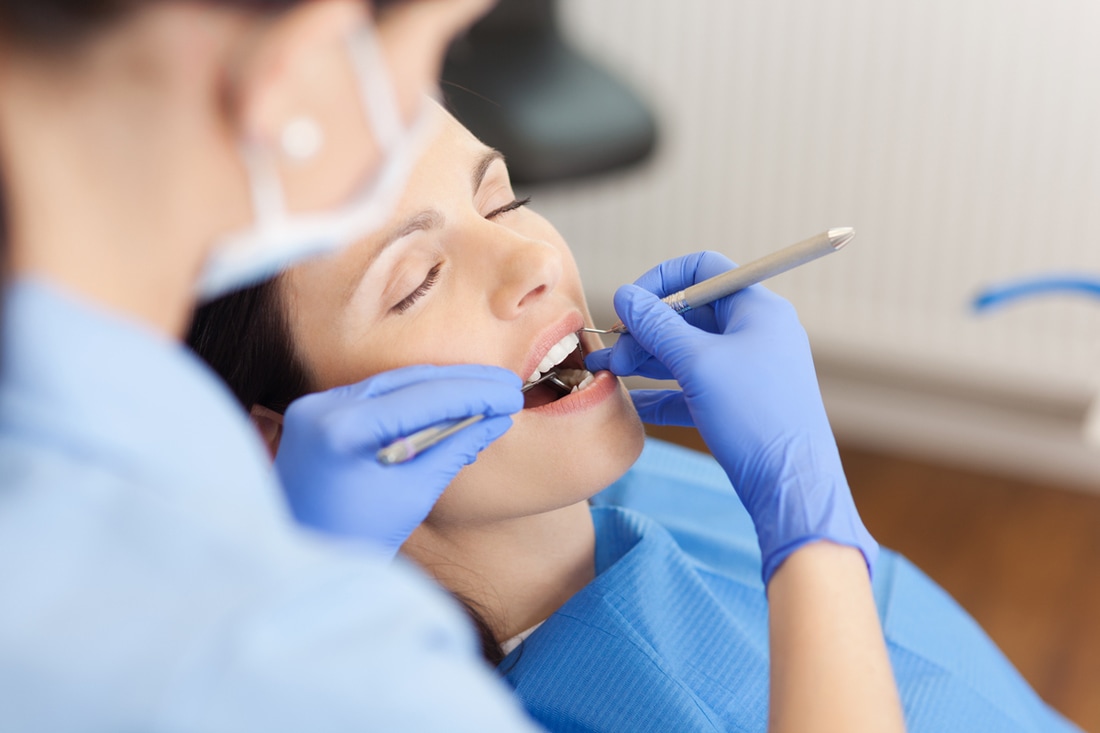Your periodontist can help you determine if your gum problems are best addressed with scaling and root planing (a “deep clean” of your gums), a tray delivering system that applies gum medications, laser periodontal surgery, or gum grafting surgery. But with advanced gum line recession, gum graft surgery is likely the best option.
Three Types of Gum Graft Surgery
Soft tissue grafts are often used by experienced periodontists to correct excessive gum recession in as natural a way as possible, thus preventing possible future tooth and bone loss. Soft tissues also reduce tooth sensitivity, improve your smile, and benefit your oral and overall health.
If you need soft tissue grafts to correct gum recession, there are four main types of surgery:
- Connective Tissue Grafts: The most commonly used procedure, this involves sourcing soft tissue from under a skin-flap cut on the roof or your mouth. The material is stitched to cover your exposed tooth roots.
- Free Gingival Grafts: This is the same as connective tissue grafting except that tissue from the surface of the mouth’s roof is used. This method is typical for those with thin gums.
- Pedicle Grafts: If you have lots of gum tissue but yet still have gum recession, your periodontist can use the local tissue. The material can be cut (but not detached), folded over, and stitched into place.
- Tissue Bank Grafts: In some cases, a tissue bank can be used, along with proteins that stimulate tissue growth.
After the Gum Graft Surgery
After soft tissue grafts are placed on your gums, you will need to adjust your diet and oral care for 1 to 2 weeks while your gums heal. You should avoid flossing and brushing along the gum line, use a medicated mouthwash, use any antibiotics your periodontist prescribed exactly as prescribed, and eat only soft foods. Avoid eating hot foods, but cool foods can soothe your gums.
If anesthesia was used during the surgery, you will need to have someone else available to drive you home as well. Be sure to ask your periodontist for any further post-operative instructions.
Some 5% to 10% of dental patients will experience gum recession and may need soft tissue grafts at some point in their life. Proper and timely response to gum problems will save your teeth and health by keeping issues from occurring and getting worse. Contact Dr. Kenzik in Ormond Beach, FL, to learn more about how to protect your gums and oral health.
